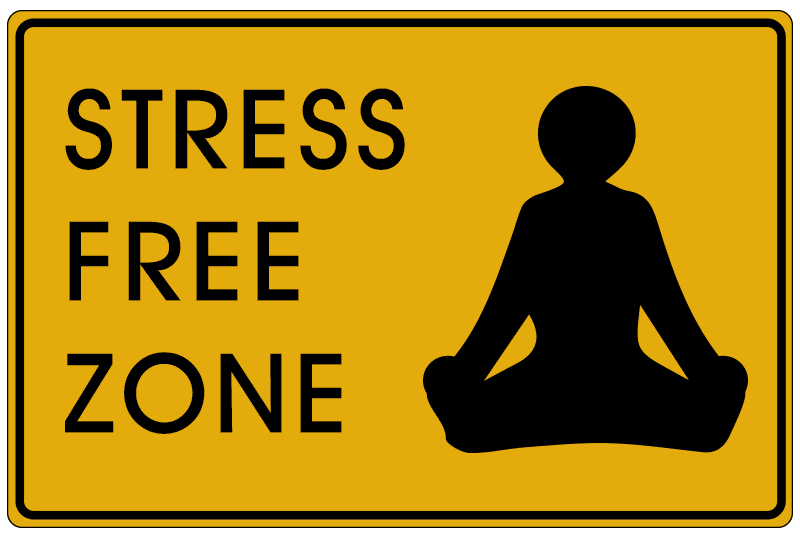
In 1964, 42% of the American population smoked. Many people, however, smoked not for the physical effects, but for the way cigarettes helped them feel more comfortable in social situations. “Everyone was doing it,” and being a smoker said a lot about who you were and where you fit in.
Today, just 15% of this country identifies as a smoker. Social scientists attribute this decline not only to the increasing awareness of the health risks of smoking but also to it’s declining social acceptance. These days, if you meet someone who smokes, you’re more likely to question their judgment. And when they want to smoke, they have to do it in a separate space, specifically delineated for people who share that poor judgment.
This is great progress. But now, America has an even more dangerous, fast-spreading habit: stress. In 2012, Columbia Medical Center published a study that showed how stress has the physical impact on our bodies of smoking five or more cigarettes a day. In fact, heart disease and other cardiovascular diseases are more closely linked to stress than to smoking, high blood pressure, or diabetes.
When you become stressed, your body goes into a ‘state of emergency,’ in which your stress hormones rise, blood vessels constrict, and heartbeat speeds up. If you need to run away from a saber-toothed tiger, this is great. But if this becomes your constant state of being, then your heart is forced to work too hard for too long, and you raise your risk of everything from high blood pressure to a heart attack.
But that’s not all. When you’re stressed out, your body pumps out a lot of extra adrenaline and cortisol. If you’re chronically stressed, these hormones culminate in extreme irritability, anxiety, or depression, leading some people down the road to self-defeating behaviors like overeating, alcohol or drug abuse, or social withdrawal. Moreover, a high presence of cortisol over time compromises your immune system, making you more susceptible to diseases and infections, and less able to recover from illness or injury. It also decreases your sex drive and messes with your reproductive abilities, interfering with women’s menstrual cycle and with men’s testosterone production.
I could spend six more paragraphs detailing the negative impact of stress on your digestive system, muscular system (notice that back and neck pain when you’re stressed?), and its links to aging and cancer. But I’d rather wrap up all this dismal stuff and move onto solutions.
It’s pretty safe to conclude that chronic stress is one of the greatest dangers to our physical and mental well-being. And just like smoking in the 1960’s, stress is a socially-rewarded habit. We wear our stressed-out lifestyles like a badge of honor because it shows how important we are and proves that we’re leading a worthy life. We rarely tell people that we’re choosing to take time for ourselves, in fear of admitting weakness.
Just like we did with smoking, we need to dramatically change the social consensus on stress. Imagine walking into a workplace, bar, or restaurant and seeing a big sign on the door: “This is a stress-free zone.” Imagine if our computers required labels like cigarette boxes, dawning cryptic graphics depicting the negative consequences of over-working. Imagine separate rooms for stressing out, where people would have to go when they couldn’t keep a calm demeanor.
I know that these suggestions seem incredibly far-fetched. And indeed, we probably need to dream up a whole new set of social systems to diminish our culture of stress, not just cut and paste what worked for an old epidemic. But imagine what it would be like to live in a world where your community rewarded you for taking things lightly and being present in the moment. Not only would you be healthier, but your self-worth and relationships would dramatically improve. Isn’t that worth working towards?
Though changing societal norms may sound daunting, it begins with simple steps at home base. Identify your greatest stress triggers and brainstorm a new way to react to them, or even better, a way to reduce the presence of that trigger in your life. Find stillness in every day, during which you meditate, or literally, do nothing. A few minutes of stillness a day can dramatically decrease your stress response. Reward yourself for getting more sleep and eating good food. Create cushions in your calendar, so you don’t force yourself into a state of hurrying or multi-tasking. And make a point of congratulating others for doing these things, too. Working together on these small changes will have a tremendous cumulative effect, saving lives and building a better world.
